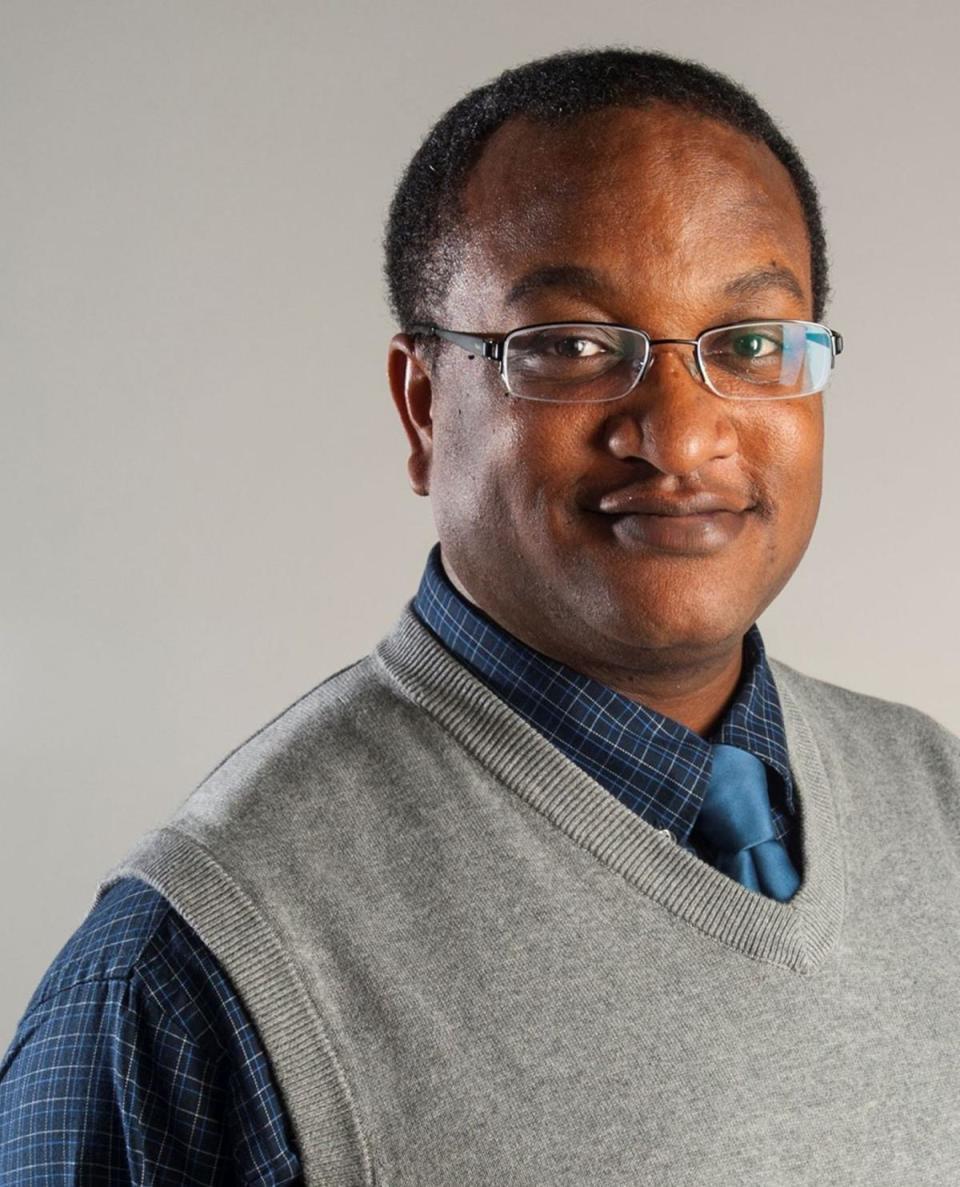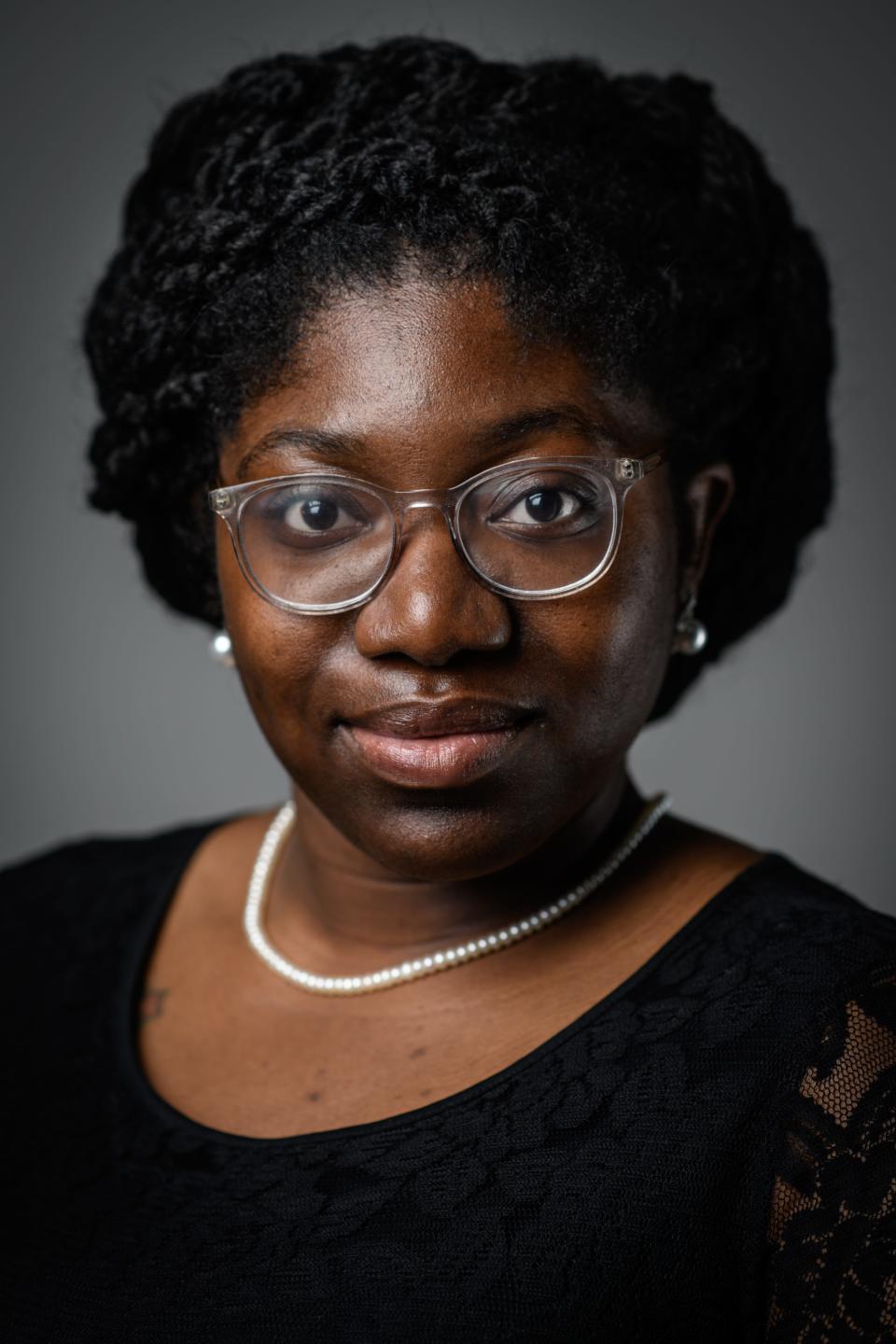Pitts: Fayetteville Civil War center a go; speaker shows why that’s great
Last Monday, the Fayetteville City Council in a 9-0 vote authorized $6.6 million to go toward the NC History Center for the Civil War, Emancipation & Reconstruction.
This was a major action. It means the History Center will be built, replacing the Museum of the Cape Fear at the site of the old Arsenal.
More:'True history' of Civil War: Fayetteville City Council approves funds for center
Some members of the Council, which is majority Black — had expressed skepticism concerning a center that would be dedicated to the study of the Civil War. But the unanimous vote suggests those concerns have been largely answered.

The city money comes with conditions, most of which History Center officials believe they have met or will easily meet.
At the meeting, Councilwoman Shakeyla Ingram said she had had an in-depth conversation with Mac Healy, the chair of the History Center Board.
“I left with a very different perspective,” she said. “But this is me as a person that appreciates history.”
More:Pitts: Black scholars influence Fayetteville Civil War, Reconstruction center
She asked Healy what feedback History Center officials had received from the community. He asked Cheri Todd Molter and Leisa Greathouse to approach, saying they had talked to many people.
Molter said she had been with the center foundation since 2016, and her research included gathering information on the descendants of the 135th U.S. Colored Troops, of the U.S. Army (the Union) and later, helping collect 100 stories from 100 counties.
More:Whose story? Residents at forum for Fayetteville Civil War center ask questions
“So far we’ve gathered close to a thousand of them,” she said.
Ingram said she had read some of the submitted stories.

“I will support this because I’ve recognized that you do have people who want their story to be shared,” she said.
She added that she also supported the Black Voices Museum and people who want to share their stories with it.
She said to Molter and Greathouse: “Because we have a community that is just sending their stories to be shared and trusting you, I just would ask that you be accountable to these stories.”
I applaud the council on its decision. I have made no secret I believe the History Center will be a great addition to our city, state and country.
I think the content will tell multiple stories from multiple perspectives about a challenging and often miscast period of time.
I came by this belief the regular way — I attended History Center events and listened to what I heard, and asked questions. (I did not exactly have to be dragged to them kicking and screaming; I love history.)
Along the way, I realized many African Americans are studying and writing about the war and Reconstruction. And these folks have made clear this center can have a big impact on improving public knowledge on the subject.
One of those people is Mike Allen, who is Black, a retired National Park Service ranger and the driving force behind the Reconstruction Era National Historical Park in Beaufort, South Carolina. I heard him speak in Fayetteville at a History Center event on Jan. 11, 2020. Ever since, he has periodically texted or called me about updates.
I was happy to text him about the latest development on Monday night.
More:'My favorite place': 100 years in the life of a Fayetteville church across from FSU
He said: “The support both financially and morally by the city of Fayetteville is welcome news. I am sure the community will welcome this museum project as a opportunity to engage in a productive and substantive conversation at it relates to the Civil War and the Reconstruction Era.”
More than 200,000 Black Union soldiers
As we wait for the physical center to be completed, its influence continues.
On Oct. 14, I went to a related event, an appearance by Dr. Frank Smith, executive director of the African American Civil War & Memorial & Museum in Washington, D.C. Smith spoke at Mt. Sinai Missionary Baptist Church — which was at the time hosting a History Center exhibition.
Smith appeared at the invitation of Demetrius Haddock and John Caldwell, who are part of the River Jordan Council on African American Heritage, a historical association. Both are advisers for the History Center.
By the way, did you know there was an African-American Civil War Museum?
I didn’t, at least not until historian Hari Jones came to speak in Fayetteville at a past History Center event. History Center organizers have said a fact-finding team they sent to D.C. to tour museums years ago was heavily influenced by a lecture Jones gave at that museum. Jones’ vision helped shape the direction the History Center would later take.
Smith worked closely with Jones, who died in 2018 at age 59. Jones was not only a historian, but a veteran, a poet and many other things besides. Smith shares poignant members of his friend in a video he made especially for Fayetteville and the History Center.
Smith, who served on the Washington, D.C., city council, opened his talk by congratulating Fayetteville on landing nearly $60 million from the N.C. state legislature to build the center.
“I’m happy to see all the good things that have happened,” he said.
He paused for a moment of silence for Jones.
He went on to focus on several ideas: the contributions Black soldiers made during the Civil War; the importance of post-war Reconstruction; and Smith’s own involvement in the 1960s Civil Rights movement as a member of the Student Nonviolent Coordinating Committee.
I felt the 25 or so of us gathered at Mt. Sinai on Friday evening — including my two young children — were receiving multiple history lessons at once.
Smith pointed to paragraph eight of the 1863 Emancipation Proclamation signed by President Lincoln: “And I further declare and make known, that such persons of suitable condition, will be received into the armed service of the United States to garrison forts, positions, stations, and other places, and to man vessels of all sorts in said service.”
Eventually, more than 200,000 Black men were recruited in the U.S. Army, an influx of soldiers that tipped the balance of the war to the Union, Smith said.
“And 150,000 of them which had been enslaved when the war started,” he said.
Smith was accompanied by Marquett Milton, a historic interpreter at the African American Civil War Museum, who dresses as a Black Union soldier would have dressed during wartime. Even Milton’s slight build and age, Smith informed us, would have been similar to those men who served. Milton then fell into character and talked about his life as a specific union soldier named Andrew Green and gave facts about Black soldiers along the way.
Milton said in North Carolina “in the 1860 Census, you had over 300,000 persons of African descent in the state. Over 30,000 were free — and 5,000 volunteered in the state of North Carolina.”
Prior to Milton's performance, Smith told the audience: “This is something you can do at your museum. Bring these stories alive, so you can see them. They can see these are real people that had real lives.”
On Reconstruction, Smith pushed back against the idea some have that it completely failed — though he did mention its violent rollback, as symbolized by the 1898 Wilmington massacre and overthrow of the local government.
Smith said he sat on a panel where a man got up and claimed Blacks were better off enslaved than during Reconstruction. Smith said he is normally very calm.
“I’ve been in politics a long time,” he said. “I know how to act.”
But he stood up: “I interrupted him.”
Smith noted: “By the time we get to 1890, there’s 100 Black colleges in the United States. This college right behind us — Fayetteville State — created in 1867. I went to Morehouse College (in Georgia), created in 1867.
He further described the scene during Reconstruction: “Black people were graduating college, they’re starting businesses churches and schools. One writer said schools were breaking out like wildflowers.”
Connecting history
The African American Civil War Museum places emphasis on connecting the past to the present. One project shows the family ties between Black celebrities and their ancestors who were Union soldiers. They include hip-hop mogul Diddy, comedian Chris Rock and Megan Markle, the Duchess of Sussex.
A future exhibit will trace the lineage of former First Lady Michelle Obama, whose ancestry runs through South Carolina and the Civil War.
The African American Civil War Museum is part of a redevelopment project in Northwest D.C. at the site of a historic elementary school that served Black Americans after the Civil War. It has been a shot in the arm for the community.
And officials with the NC History Center who tout the economic impact the center will have here may be onto something.
Smith said he sold the DC Council on the idea of a national monument for Black Civil War soldiers as a way to draw tourists to the area.
“The most affluent and most educated tourist in the world is the Civil War tourist,” he said. “They stay twice as long as the average tourists and they spend twice as much money.
“If you were trying to figure out if I want a tourist in my neighborhood, who do I want in my neighborhood, well, I can tell you right now.”
He added: “They’re kind of cantankerous because they all think they know everything already before they get there. You tell them, ‘You going to see something here you’ve never seen before.’”
My family was in D.C. this past summer. Among our stops was the National Museum of African American History and Culture.
Next time, we will make time to go see all the fine work Smith and his team is doing at the African American Civil War & Memorial & Museum.
I look forward to it.
Myron B. Pitts can be reached at mpitts@fayobserver.com or 910-486-3559.
This article originally appeared on The Fayetteville Observer: Pitts: Fayetteville Civil War center a go; speaker shows why that’s great
